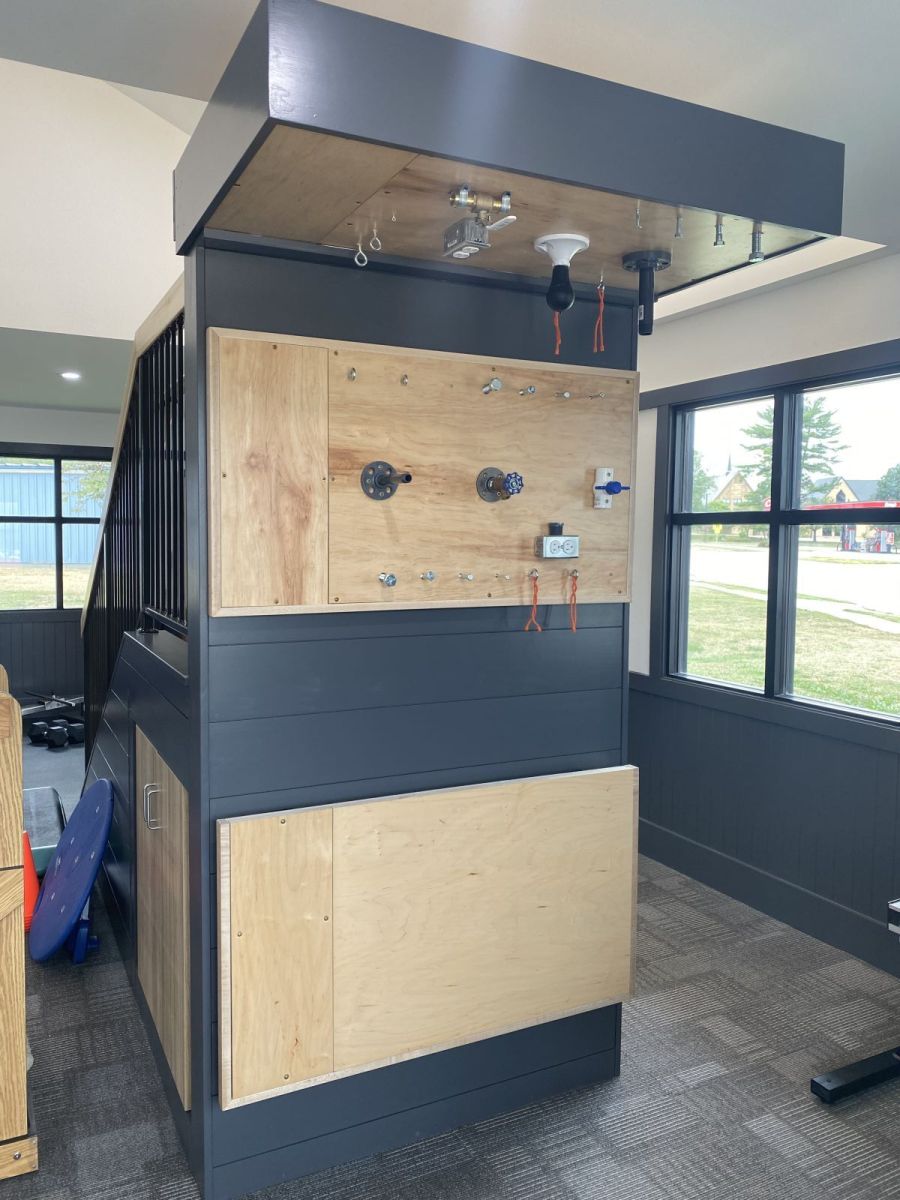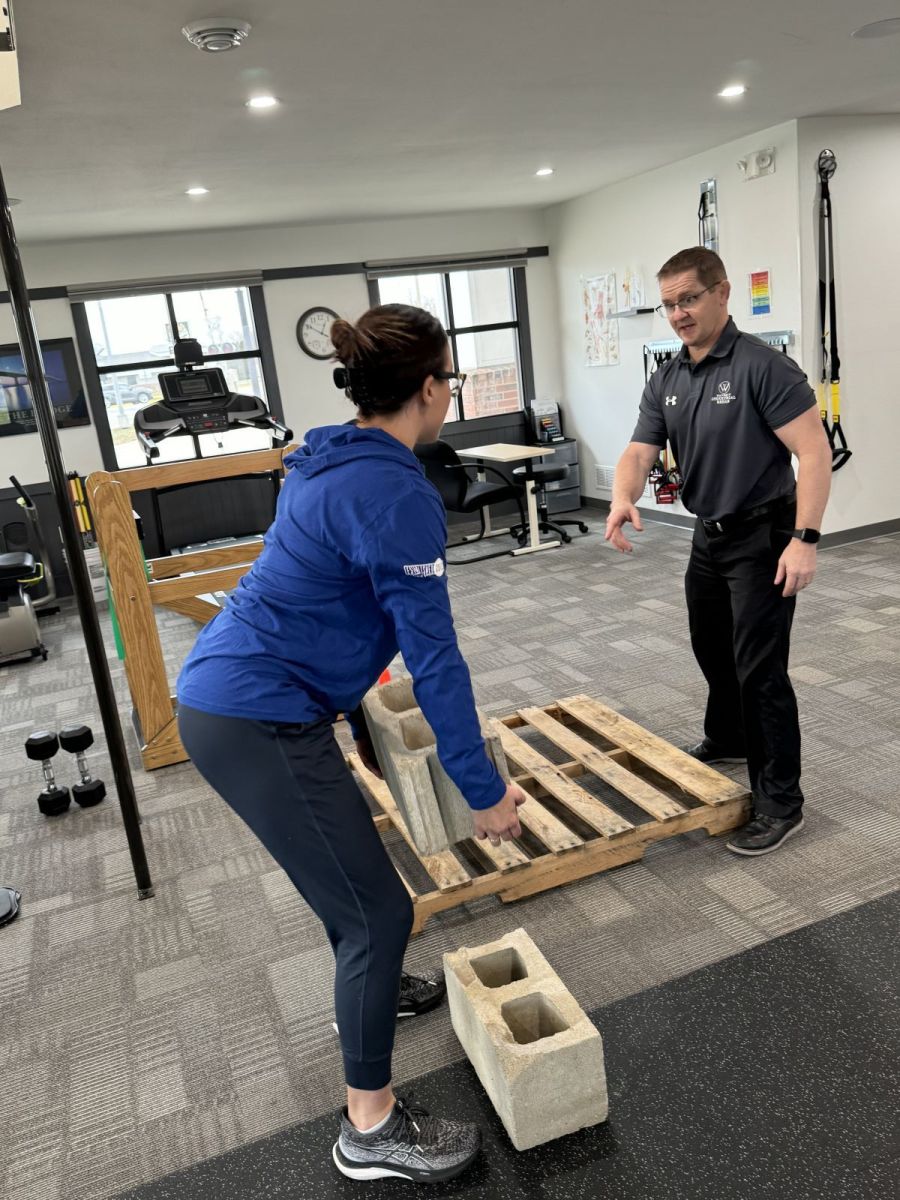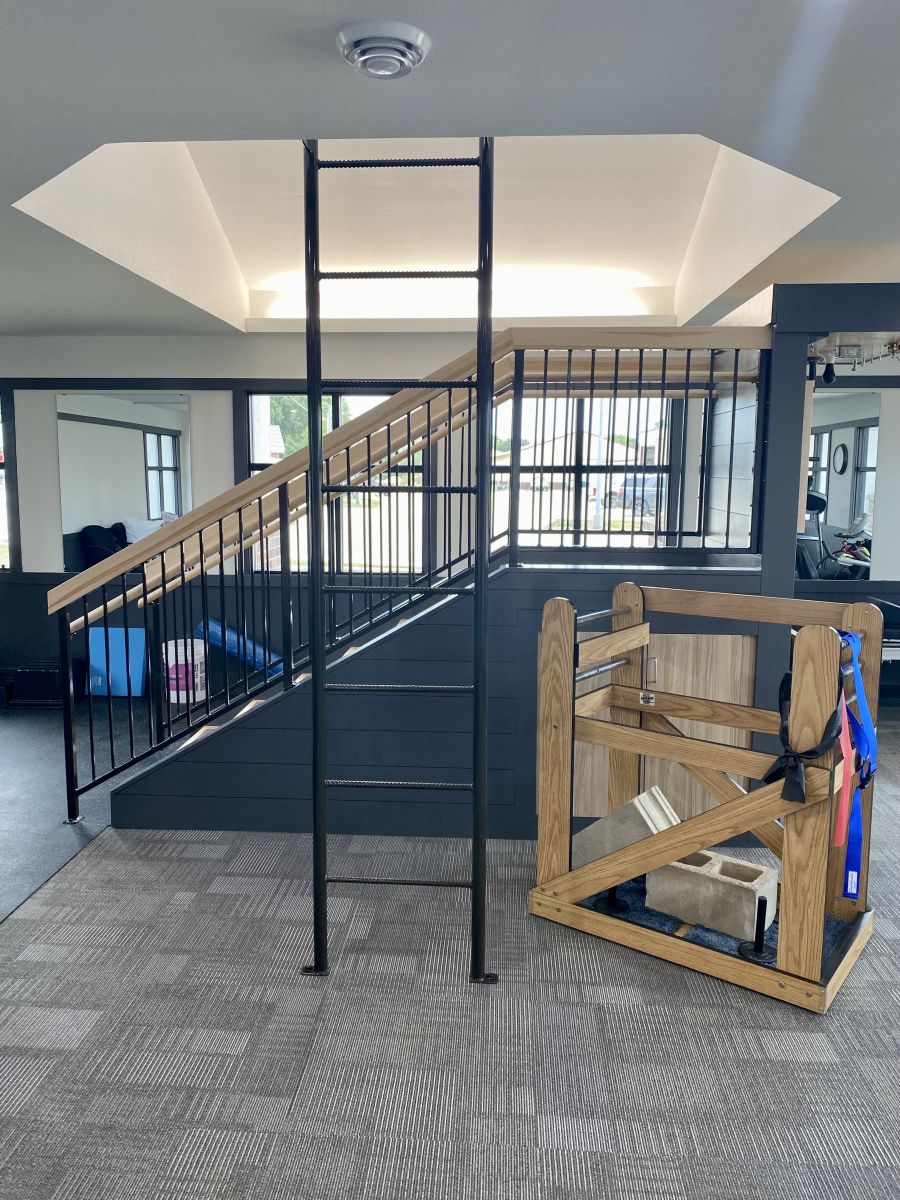Clinic Based Services



.jpg)
Workman's Compensation Rehabilitation
Physical and occupational therapy completed at Waverly Industrial Rehab (WIR) looks and feels different than any other rehabilitative clinic in the area, including other Taylor Clinics! The gym space at WIR houses innovative equipment which allows for the injured employee to practice their job-specific tasks such as overhead work, sweeping, shoveling, pushing and pulling heavy loads, or climbing a ladder. After completing therapy at WIR, the employee will return to work not only physically recovered from the injury, but mentally confident they can complete the physical demands of their job!
Taylor Therapy also offers four other locations across Eastern Iowa with skilled therapists that are able to treat those injured on the job. After the employee reaches their physical therapy goals, it is recommended that they transition to work hardening at Waverly Industrial Rehab to ensure they can practice their job duties and return to work conditioned to meet the demands of the workplace.
Functional Capacity Evaluation (FCE) with XRTS
As healthcare professionals who are movement experts, a physical therapist utilizing XRTS for functional capacity exams can accurately measure physical function and validity of effort while eliminating biases and providing a higher level of objectivity compared to ther programs. FCE will be scheduled within one week of receiving the referral and a report will be generated within 48 business hours following the completion of the FCE.
Work Hardening
The goal of physical therapy is to return the patient to their pre-injury functional status, meaning they can return to activities of daily living such as self-care, hobbies, or housework. Often, the physical demand of a job exceeds what is required to complete activities of daily living. Meaning, after therapy an employee may be able to function at home; however, they are not yet back to being able to complete a full day of physical labor at work. Work hardening is a conditioning program that addresses these deficits by prescribing work-specific tasks for anywhere from 2-5 hours a day, for 3-5 days a week. Work hardening at Waverly Industrial Rehab provides a gym that is uniquely designed with job simulation and continuity of care between Dr. Fields and the rehabilitation staff.
Post-Offer Physical
After an employee completes the post-offer physical, the employer will receive information that indicates if the employee can complete the physical demands of the job, in addition to the medical review and vision screen. This is unique to Waverly Industrial Rehab and allows the employer to understand the risk they are potentially willing to accept by placing an employee on a specific job or workstation. Waverly Industrial Rehab can schedule physicals within 72 hours or less, getting the employee safely on the job faster than local competition.
Post-Offer Physical + Baseline
Baseline measurements are completed for strength and range of motion at various joints (such as shoulders, hips, and knees) throughout the body. Baseline measurements are critical to identify pre-employment as they are used as a reference point post-injury to understand what the individual's "pre-injury normal" was. Without baseline measurements, employers may be faced with the costs associated with medical treatment and impairment ratings for a condition that existed prior to employment.
Fit-For-Duty Performance Test
Following an injury, prior to returning to work, a healthcare professional evaluates an employee's ability to perform the demands related to their essential job functions. This evaluation determines if the individual has recovered from injury and is physically able to safely perform their job duties.
- Evaluating if an individual is physically able to complete tasks that are expected during completion of their job requirements
- Prevents future injuries by identifying employees who are physically unable to complete the demands of a specific job
Audiogram
Offered to partnering businesses, and by appointment only, pre-employment or annual re-check audiograms are offered at Waverly Industrial Rehab. Can discuss providing this as an on-site service upon request.
DOT and Non-DOT Drug Screen Collection
Offered to partnering businesses, and by appointment only, rapid drug screens are collected at Waverly Industrial Rehab, with results shared on the same day.

